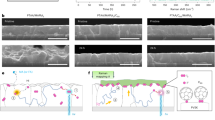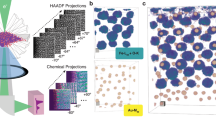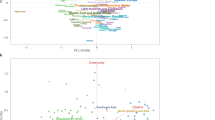Abstract
PROF. SAHA'S suggestion (NATURE of Feb. 1, p. 163) that colour in inorganic, compounds depends upon the existence of an electronic state of the metal ion separated from the ground state by about 18,000 wave-numbers finds some support at least from work which has been begun here upon the general problem of crystal spectra. There is a mass of evidence for his theory from the study of the rare earths (see particularly Freed and Speeding, Phys. Rev., September 1929); but since the rare earths are exceptional because of the incompleteness of an inner quantum group with a consequent shielding of f electrons in it, it is more interesting to consider the spectra of chromium salts.
This is a preview of subscription content, access via your institution
Access options
Subscribe to this journal
Receive 51 print issues and online access
$199.00 per year
only $3.90 per issue
Buy this article
- Purchase on Springer Link
- Instant access to full article PDF
Prices may be subject to local taxes which are calculated during checkout
Similar content being viewed by others
Author information
Authors and Affiliations
Rights and permissions
About this article
Cite this article
SNOW, C., RAWLINS, F. Colours of Inorganic Salts. Nature 125, 349–350 (1930). https://doi.org/10.1038/125349b0
Issue Date:
DOI: https://doi.org/10.1038/125349b0
Comments
By submitting a comment you agree to abide by our Terms and Community Guidelines. If you find something abusive or that does not comply with our terms or guidelines please flag it as inappropriate.



